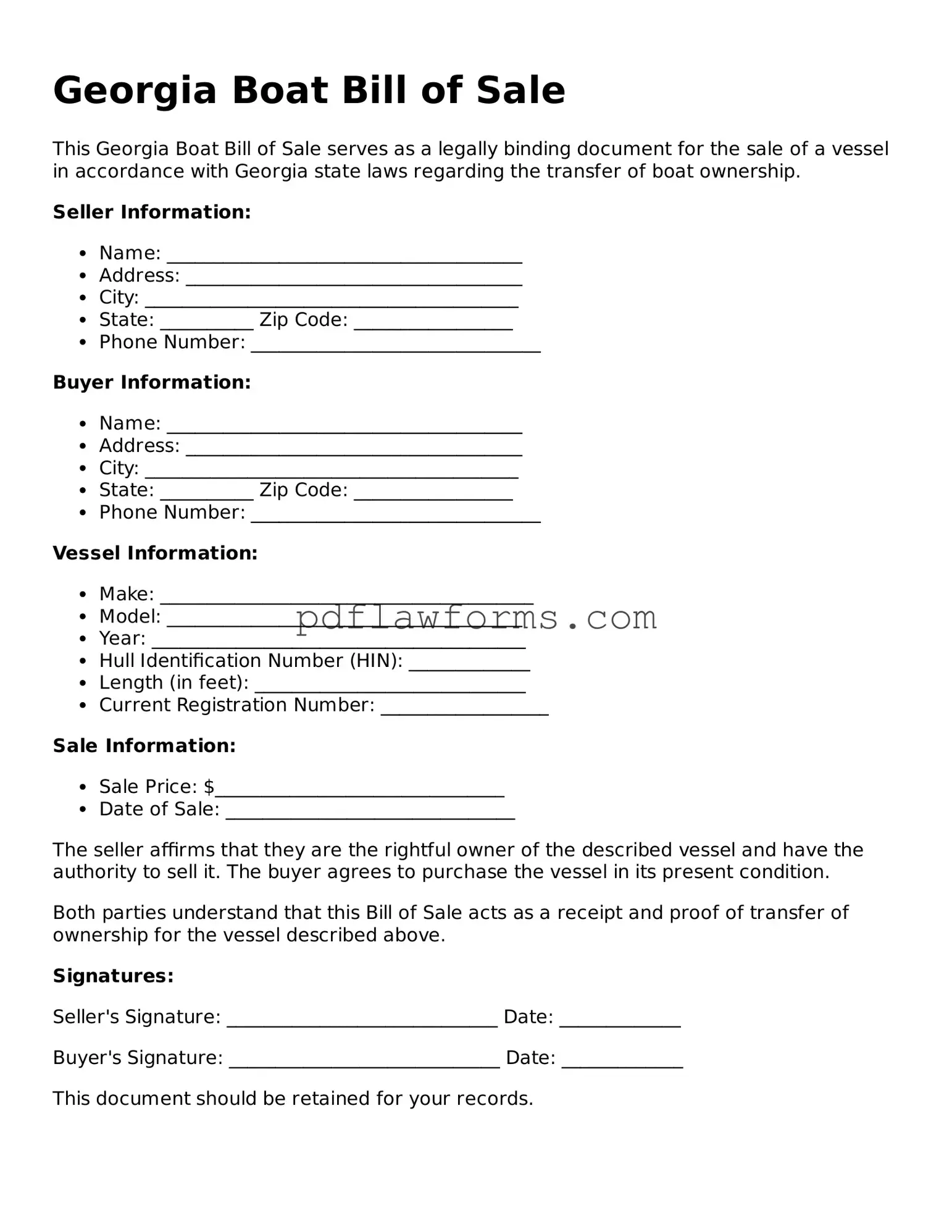Filling out the Georgia Boat Bill of Sale form can seem straightforward, but many people make common mistakes that can lead to complications. One frequent error is failing to include all necessary information about the boat. The form requires details such as the make, model, year, and hull identification number (HIN). Omitting any of these details can create confusion and may affect future registration.
Another mistake is not accurately recording the sale price. This figure should reflect the actual amount paid for the boat. If the price is too low or not stated at all, it can raise red flags with tax authorities, potentially leading to penalties or additional taxes owed.
Many individuals overlook the importance of both parties signing the form. A signature from both the seller and the buyer is essential to validate the transaction. Without these signatures, the bill of sale may not hold up in legal situations, such as disputes over ownership.
Additionally, some people fail to date the bill of sale. The date of the transaction is crucial for establishing when ownership transferred. Not including this date can complicate matters if there are questions about when the sale occurred.
Another common oversight is not providing the correct contact information for both parties. Full names, addresses, and phone numbers should be included to ensure both parties can be reached if necessary. Missing this information can lead to difficulties in communication after the sale.
People often neglect to check the accuracy of the boat's registration status. Before completing the bill of sale, it is wise to confirm that the boat is not reported stolen or has any liens against it. Failing to do so can result in legal issues down the line.
Some individuals make the mistake of not keeping a copy of the completed bill of sale. It is important for both the seller and buyer to retain a copy for their records. This document serves as proof of the transaction and can be useful for future reference.
Another issue arises when the form is filled out in pencil or with erasable ink. Using permanent ink is recommended to prevent any alterations after the fact. Changes made to the form can lead to disputes about the terms of the sale.
People also sometimes forget to include any additional terms or conditions of the sale. If there are specific agreements, such as warranties or included accessories, these should be clearly stated in the bill of sale to avoid misunderstandings later.
Lastly, many individuals fail to understand the importance of notarization. While notarization is not always required for a bill of sale in Georgia, having it notarized can provide an additional layer of security and legitimacy to the transaction. This can be particularly helpful if disputes arise in the future.

